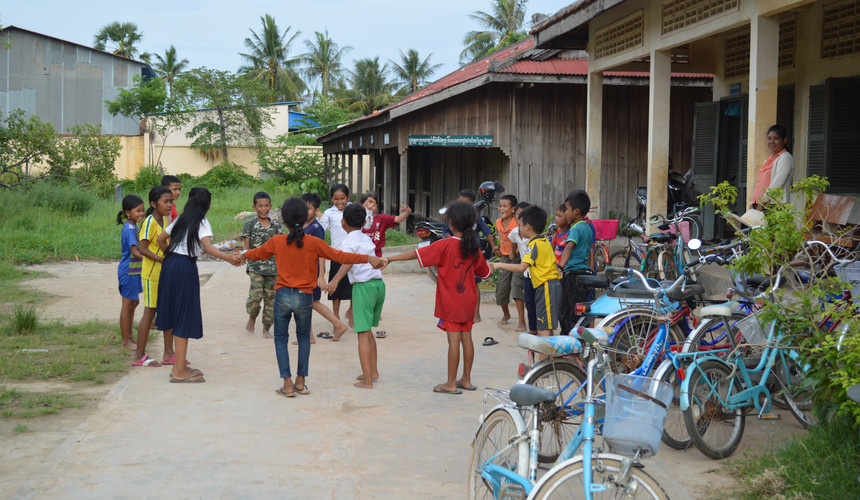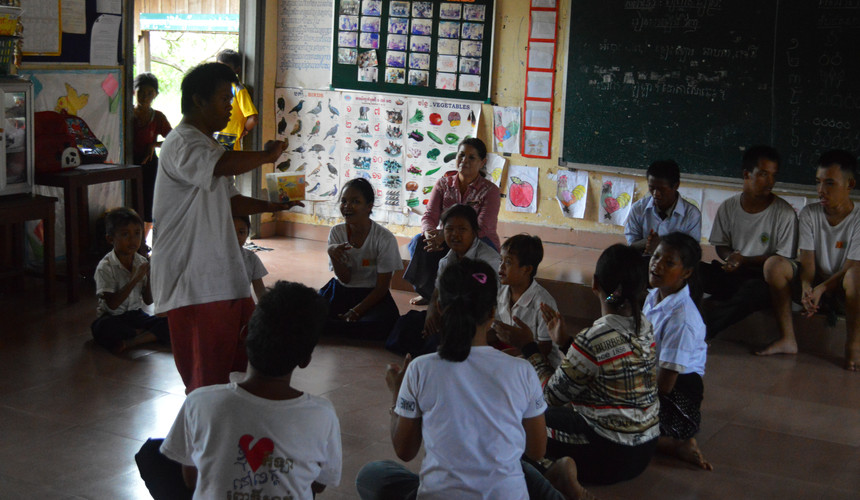Training week in Pursat, Cambodia
- Jennie Wendland

- Jul 6, 2019
- 4 min read
We began DSI in large part as a platform to take action to address the immense discrepancies between the human rights and available services for people with disabilities in many places in our world today. Our mission statement at DSI states that we work 'to advocate, support, and empower to improve the lives of people with disabilities in developing countries so they can live life to the fullest'.
In pursuit of our mission, one of our main programming areas works to provide disability training support to our partners. We believe that the best 'resources' to continue building inclusive societies and disability services are the local people, including the families of people with disabilities, community leaders and members, teachers and of course, people with disabilities themselves. We think this is true no matter where you live. We also believe that by building bridges that share knowledge and resources we can work as equal partners to identify needs and help to continue improving local capacity and 'fill the gaps'. This past week we had the opportunity to work with our partner organization Disability Development Services Program (DDSP) in Pursat, Cambodia as we strive together to do just this.

Our ongoing work with our partners including DDSP involves first building a relationship and taking time to learn about their work and then together, prioritizing needs and goals within their organization that DSI may be able to help with. DDSP's director, Samnang, and their leadership staff have shared that ongoing training on understanding different disabilities as well as strategies for teaching students with disabilities are high priority need areas for both their staff, as well as parents and community members.
After arriving in Pursat, we first took time to meet with the staff to hear updates about their current programming which includes an impressive amount of work across the province. They have both inclusive and integrated classes within a growing number of schools where students with disabilities have access to education at their local schools in addition to separate day schools. It was exciting for us to see some of the same students and staff we met during our research trip in 2016.
In addition to their school based programming, DDSP works with Disabled Persons Organizations (DPOs) throughout Pursat that includes contact with the 49 communes and 511 villages where they meet with people with disabilities in their own communities hearing what their needs are and work to help resolve their needs through raising of funds, advocacy in policy change, and communication with other agencies. Some of these needs are met through WASH programs (water, sanitation, and hygiene) and also their inclusive business models in partnership with Heifer International by helping PWDs raise chickens for sale, egg production, and husbandry. They also work with referrals from hospitals for individuals who have become physically disabled by training the individuals and their families about proper care and rehabilitation through range of motion activities, wound care, and other medical needs.
After that, we spent time observing several programs including a daycare service center in the rural part of the province, a local school with an integrated classroom, and their newly developing vocational training center where they will help PWDs receive training in tailoring, cooking, moto and bicycle repair, computer applications, English, in addition to classroom space for children with disabilities.

We then spent the next two days delivering training regarding behavior management to better understand the form and function of an individual's behavior to better understand 'why' it is happening and continues to happen and then strategies to prevent, intervene, and plan for meaningful consequences to reduce undesirable behaviors and increase desired behaviors. Through our previous experiences, we have learned to offer separate trainings for staff who are often ready to go deeper into content faster, and families who we want to make sure we provide more time to answer individual questions that pertain directly to the children they represent. In total we were able to train 22 staff and 15 family members that included both parents, aunts, and grandparents of children with disabilities.
Here are a few photos of our training time with both the staff and families:
As we shared information during our trainings and interacted with trainees during group discussions and activities, we answered questions about known causes of disabilities and discussed commonalities amongst specific disabilities (like CP, autism and down syndrome). We heard heartbreaking stories of struggle and shame, as well as amazing stories of strength and perseverance. Over time, we have come to learn the significance of certificate ceremonies to conclude our trainings. With an average school completion rate in Cambodia of 4.4 years (and keep in mind that public school days are only half days here), we know it is likely that many of our trainees did not have the privileged access to the levels of education we too often take for granted. We see this as a time to recognize the time and passion of each individual who comes to receive disability training. We want to celebrate their efforts to improve their own knowledge base and well as the ways that they strive to be leaders in the disability field in their communities and families (because that is exactly what they are).
After our training days, we did follow up visits with some of the staff for further coaching and time to answer more pointed questions about direct needs of specific students and classroom practices. These provided direct opportunities to discuss specific strategies and also are a welcome time for us to spend time with the kids too!
At the end of the trainings, we too were presented with traditional kromas (Cambodian scarves) and a beautifully framed certificate of appreciation for our time and partnership efforts with DDSP. We are appreciative and continually inspired by our partners, like DDSP.
Our program work is almost entirely supported from individual donors. Please consider donating to support more work like this. DDSP has asked for us to return on our next trip for additional training. Donating helps to make this a reality.
_edited.png)













































































Comments